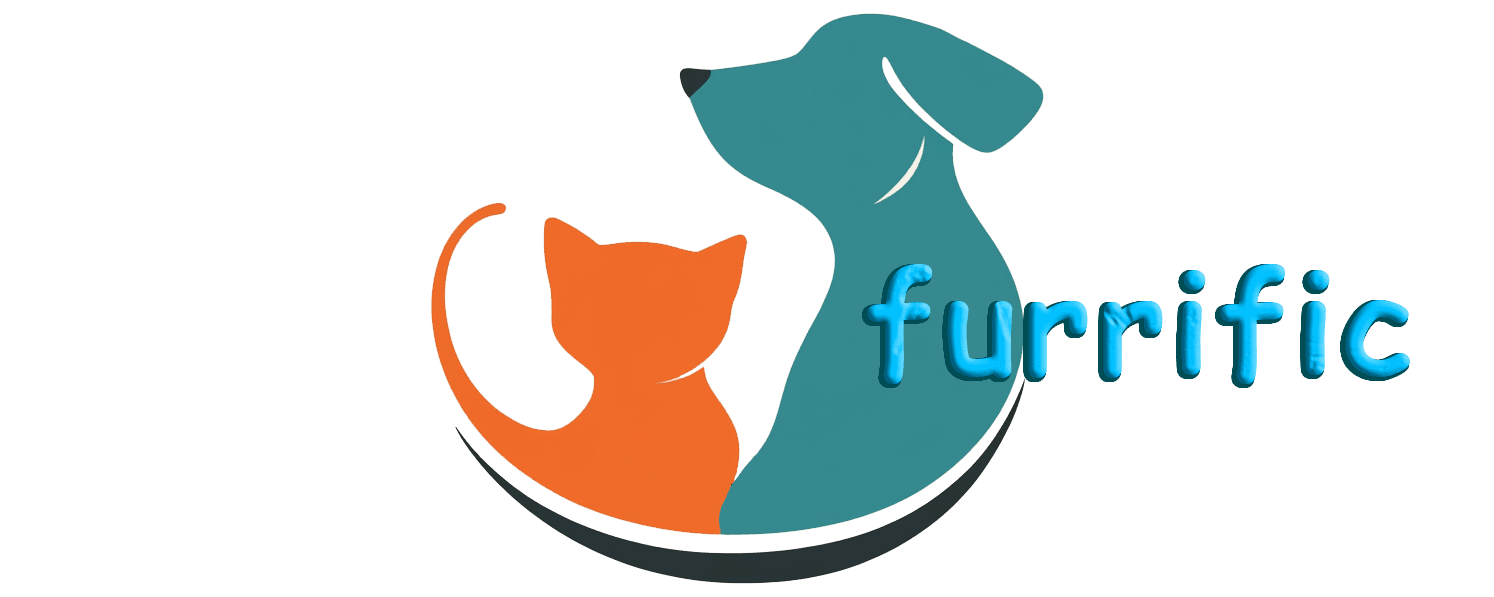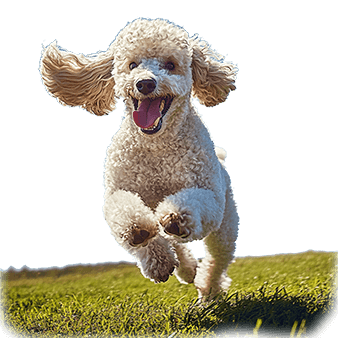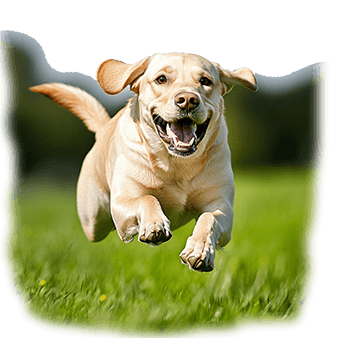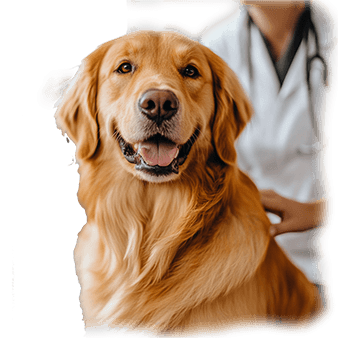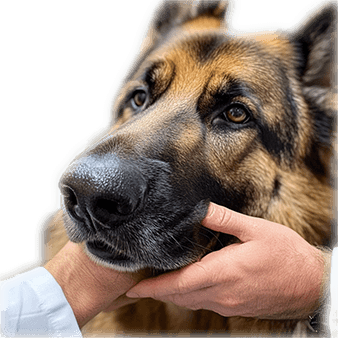Bulldog Health: Essential Tips for a Healthy and Happy Dog
Bulldogs are one of the most beloved breeds, known for their wrinkled faces, stocky build, and charming personalities. However, their unique physical characteristics come with specific health challenges. As a Bulldog owner, it’s essential to understand the potential health issues your dog may face and how to provide proper care to keep them happy and healthy.
In this guide, we’ll cover common health problems in Bulldogs, preventive measures, and tips to manage their overall well-being.
Breathing Issues in Bulldogs
One of the most well-known health concerns for Bulldogs is their difficulty with breathing. Bulldogs are a brachycephalic breed, meaning they have a short nose and flat face, which can cause airway obstructions. This condition is known as Brachycephalic Airway Syndrome.
- Signs of Breathing Problems: You may notice your Bulldog snoring loudly, wheezing, or having difficulty breathing, especially during exercise or in hot weather. In severe cases, they may even collapse due to lack of oxygen.
- Prevention and Management: To help your Bulldog breathe more easily, avoid strenuous exercise in hot or humid conditions. Always ensure they have access to fresh water and a cool environment. If your Bulldog has severe breathing problems, consult a vet about surgical options to widen the airways, which can significantly improve their quality of life.
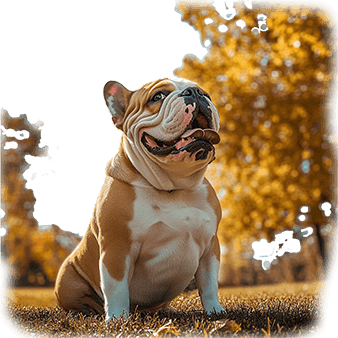
Skin Fold Dermatitis
Bulldogs have adorable, wrinkly skin, but these folds can trap moisture, dirt, and bacteria, leading to skin fold dermatitis. This is a common issue, especially around their face and tail.
- Symptoms to Watch For: Redness, itching, foul odor, or discharge in the skin folds. Your Bulldog may also scratch or rub their face against objects.
- Preventive Care: Clean your Bulldog’s skin folds regularly with a damp cloth or pet wipes. Make sure to dry the folds thoroughly afterward to prevent moisture buildup. You can also use a vet-recommended antiseptic solution to keep bacteria at bay.
- Treatment: If your Bulldog develops an infection, your vet may prescribe medicated wipes, creams, or antibiotics to treat the condition. Regular cleaning is key to preventing future outbreaks.
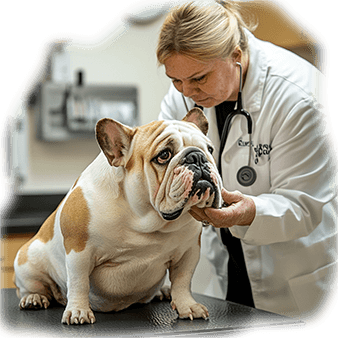
Joint and Mobility Issues
Bulldogs are prone to joint problems, particularly hip dysplasia and elbow dysplasia. These conditions occur when the hip or elbow joints do not develop properly, causing pain and stiffness.
- Symptoms of Joint Problems: Limping, reluctance to jump or climb stairs, difficulty standing up, or visible discomfort after exercise.
- Preventive Care: Maintaining a healthy weight is critical for Bulldogs to reduce pressure on their joints. Overweight Bulldogs are more likely to develop joint issues, so portion control and regular, low-impact exercise are important. You can also provide joint supplements such as glucosamine and chondroitin (Amazon affiliate link) to support joint health.
- Treatment Options: If your Bulldog shows signs of joint pain, consult your vet about anti-inflammatory medications, physical therapy, or, in severe cases, surgery. Providing your Bulldog with a comfortable, soft bed can also help alleviate joint pressure while they rest.
Obesity in Bulldogs
Bulldogs have a tendency to gain weight easily, and obesity can exacerbate many of the health problems they are already prone to, such as joint issues and breathing difficulties.
- Signs Your Bulldog May Be Overweight: Difficulty breathing, decreased stamina, and visible fat rolls. You should be able to feel your Bulldog’s ribs without pressing too hard.
- Preventive Measures: Feed your Bulldog a balanced diet that is appropriate for their age and activity level. Avoid giving them too many treats, and make sure to measure their food portions to prevent overeating. Regular walks and playtime will help maintain a healthy weight. Because Bulldogs aren’t high-energy dogs, be mindful not to over-exercise them—short, frequent walks are usually best.
- Dietary Tips: Choose high-quality dog food (Amazon affiliate link) that is low in fat but rich in protein to help maintain muscle mass without adding unnecessary weight. Consult your vet to create a weight management plan if your Bulldog is already overweight.
Eye Problems in Bulldogs
Bulldogs are susceptible to a range of eye conditions, including entropion, dry eye, and cherry eye. Their prominent eyes and loose facial skin can lead to irritation and other issues.
- Common Eye Issues:
- Entropion: A condition where the eyelids roll inward, causing the lashes to irritate the eye. This can lead to discomfort and infection.
- Cherry Eye: A protrusion of the third eyelid, which appears as a red, swollen mass in the corner of the eye.
- Dry Eye: Insufficient tear production, leading to dry, irritated eyes. Try an over the counter dog eye drops (Amazon affiliate link) to help with dry eyes.
- Prevention and Treatment: Regularly check your Bulldog’s eyes for redness, discharge, or swelling. Gently wipe away any debris or tears with a clean, damp cloth. If your Bulldog shows signs of an eye issue, consult your vet. Surgical intervention may be necessary for conditions like entropion or cherry eye, while dry eye can often be managed with medicated eye drops.
Tail Pocket Infections
Some Bulldogs have a tail pocket, a small indentation beneath the tail that can easily trap moisture and dirt, leading to infections.
- Signs of a Tail Pocket Infection: Swelling, redness, or a bad odor coming from the area beneath the tail. Your Bulldog may also scoot their rear on the floor or lick the area excessively.
- Preventive Care: Clean the tail pocket regularly using gentle pet wipes or a damp cloth, and make sure the area is dry afterward. Applying a vet-recommended powder can help keep the area dry and free from irritation.
- Treatment: If an infection develops, your vet may prescribe antibiotics or medicated creams to treat the condition. In severe cases, surgical removal of the tail may be recommended.
Heat Sensitivity in Bulldogs
Bulldogs are highly sensitive to heat due to their brachycephalic anatomy, which makes it difficult for them to regulate their body temperature.
- Signs of Heat Exhaustion: Excessive panting, drooling, lethargy, vomiting, or collapse. Heat exhaustion can quickly lead to heatstroke, which is life-threatening.
- Prevention Tips: Avoid walking your Bulldog during the hottest parts of the day, especially in the summer. Always ensure they have access to fresh, cool water and a shaded or air-conditioned environment. Never leave your Bulldog in a car on a warm day, even with the windows cracked—it can be fatal.
- What to Do in Case of Heat Exhaustion: If you suspect your Bulldog is overheating, move them to a cool area immediately, offer small amounts of water, and use a damp towel to cool them down. Contact your vet right away if symptoms persist. You can also use a dog cooling mat for fast relief (Amazon affiliate link).
Bulldog Health Tips Summary
Bulldogs are a lovable breed, but they come with their share of health challenges. Being aware of these issues and taking preventive measures can go a long way in keeping your Bulldog happy and healthy. Regular vet check-ups, a balanced diet, proper grooming, and cautious exercise are all essential parts of maintaining your Bulldog’s well-being. By staying informed and proactive, you can help your Bulldog live a long, comfortable life.
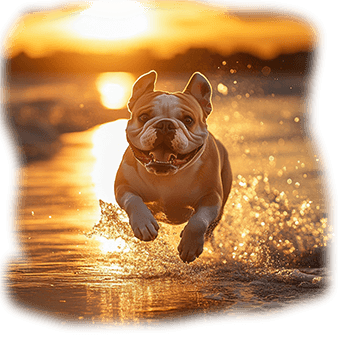
Regular Health Monitoring: Always keep an eye on your Bulldog’s breathing, weight, skin folds, and joints. If you notice any changes in their behavior or appearance, it’s always best to consult your vet sooner rather than later.
By following these tips and keeping up with regular care routines, your Bulldog can live a healthy, happy life, despite their breed’s health predispositions. Let your vet guide you with breed-specific advice, and always be vigilant when it comes to your Bulldog’s unique health needs.
Further reading: “The Bulldog Handbook: aka English Bulldog & British Bulldog” (Amazon affiliate link) by Linda Whitwam.
Affiliate Disclosure
This post may contain affiliate links, which means I earn from purchases made through links. Please see the privacy policy page for more details.
